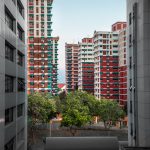Singapore’s terror threat has just become even more real.
Thanks to social media, the terror threat in Singapore has become even more real and closer to home.
A paper published last week (15 June) by Senior Analyst Javinder Singh of the S. Rajaratnam School of International Studies revealed that Singapore has been claimed as part of ISIS’ “East Asia wilayah”, or “East Asian state” on its various social media platforms.
In the paper, titled “The 2017 Marawi Attacks: Implications for Regional Security”, Singh stated:
“There has been chatter on social media that the East Asia Wilayah includes Singapore, Malaysia, Indonesia, Philippines, Southern Thailand, Myanmar and Japan and that the citizens of these nations will live under the rule of Abu Bakr al Baghdadi which includes the payment of jizyah or tax to Islamic State.”
Actually, according to the Singapore Terrorism Threat Assessment Report 2017, this is not the first time that Singapore has been mentioned on ISIS publications.
According to The Straits Times, security experts like Associate Professor Antonio Rappa (from the Singapore University of Social Sciences) and Associate Research Fellow Remy Mahzam (from the International Centre for Political Violence and Terrorism Research) both warned of the possibility of these statements motivating more self-radicalised individuals and attacks.
Specifically, the mention of Singapore paints our nation as a legitimate target, and provides even more justification for radicalised individuals to carry out potential attacks.
Singh also explained in his paper how the “difficulties” in travelling to Syria and Iraq might prompt jihadists to take part in regional conflicts like the current siege in Marawi City. In his paper, he added:
“An important takeaway from the Marawi City attack is the increasingly regional offensive that IS’ affiliates are launching in Southeast Asia.
From a strategic perspective, the region is being targeted as it constitutes a reservoir of Sunni Muslims.”
Close To Home
With recent happenings in Singapore, experts like Singh, Rappa and Mahzam may have a point with regards to the rise of local self-radicalised threats.
Just yesterday, it was reported that private security officer Muhammad Khairul Mohamed was detained under the Internal Security Act (ISA) for planning to travel to Syria to take part in the conflict.
Likewise, his colleague, Mohamad Rizal Wahid, has been hit with a restriction order for expressing support of Khairul’s plan.
This has raised some worried eyebrows among Singaporeans, seeing as to how the two have had prior arms training.
Even the most unsuspecting of individuals can be guilty. Last week, the Ministry Of Home Affairs detained its first female citizen Syaikhah Izzah Zahrah Al Ansari under the ISA.
Izzah, who was an infant care assistant, had circulated ISIS material online and had plans to join ISIS by relocating to Syria with her young child.
Repeating a sentiment expressed in the Singapore Terrorism Threat Assessment Report 2017, the recent news has prompted Home Affairs Minister K Shanmugam to call for Singaporeans to report on family and friends who might be radicalised.
We Must Find A Way
That said, while these reports have placed the Muslim community in the spotlight, Singaporean leaders have also warned against any potential Islamophobic sentiment.
Two days ago, Prime Minister Lee Hsien Loong openly stated that an Islamophobic mentality is just as bad as radical terrorism, and urged all communities to remain vigilant against the threat.
In a Facebook post on 12 June, Minister in Prime Minister’s Office Chan Chun Sing also expressed a similar sentiment:
“Even as we deal with this challenge, we must avoid developing any sense of distrust with one another as this can tear apart our hard woven social fabric. We must guard against xenophobic behaviour or any other sentiments that can divide us.”
Similarly, in a Facebook post published yesterday (22 June) Minister for Culture, Community and Youth Grace Fu also hailed the efforts of the Muslim community in countering radical terrorism ideologies:
“Our Muslim community has made much effort in countering radicalisation. They have continuously rejected radical ideology.”
With Singapore’s terror threat alert at an all time high and the hidden danger of radicalised locals becoming even more real, Singapore’s security situation is undoubtedly on its edge.
While Singapore seems close to the edge, the sentiment from our leaders is clear: We cannot let these events divide us.













